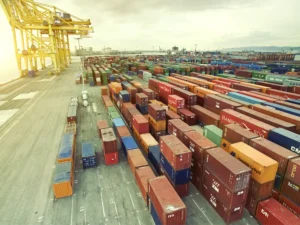The questionnaire is already pre-built and formatted in our easy-to-use platform. Simply load your suppliers, send your Human Rights: Beyond Compliance assessment, and start collecting data.
Tailored to the reporting requirements of human rights legislation in the United Kingdom, Germany, France, Australia, and California, the Human Rights: Beyond Compliance Assessment improves your visibility into your suppliers’ labor practices at every tier of your supply chain. Developed by experts from Verité, this assessment also goes beyond compliance to improve insight into labor and recruitment practices in your supply chain to mitigate risk of fraudulent or misleading recruitment schemes and forced labor. By helping you identify labor risks at a multi-tier level, this tool allows you to meaningfully address modern slavery, human rights, and human trafficking concerns while also enabling compliance with global laws.
Go Beyond Compliance
Forced labor and anti-human trafficking regulation is becoming increasingly common. Gaining a holistic understanding of human rights as well as the labor and recruitment practices within every tier of your supply chain will allow you to go beyond compliance and engage with high-risk suppliers to improve.
Stay Ahead of the Risk Curve
Human rights concerns have recently skyrocketed to the center of consumer and regulatory attention. Businesses can no longer afford to remain disengaged; demonstrate your commitment to eliminating modern slavery, forced labor and human trafficking throughout your entire value chain.
Increase Resilience
Rebuilding systems with environmental and social responsibility in mind is key to ensuring a more just and resilient future for brands and society at large.
Assess Suppliers

Gain Insights
Your data will come back already formatted and ready for analysis. Simply toggle through our pre-built dashboards to gain insight into your suppliers’ human rights performance.

Drive Change
Spot human rights leaders and laggers and flag the biggest opportunities for improvement. Engage suppliers to communicate your experience and support their efforts to do better.

Asking the right questions
Addressing modern slavery, forced labor and other human rights concerns in supply chains requires deep supplier engagement efforts that go beyond data collection. Using insights from the Human Rights: Beyond Compliance Assessment, our team can help you navigate this challenging process and purposefully engage your suppliers.
Social/Labor Policies & Initiatives: Supplier Certification
Do you require your direct suppliers to certify that all materials incorporated into your final product were sourced and manufactured in compliance with the human trafficking and slavery laws of the country and countries in which they operate? If yes, please describe the certification requirements for your suppliers.
Labor Recruiters & Employment Agencies: Modern Slavery Statement
How do you evaluate your labor providers’ ongoing performance in meeting both social responsibility and legal requirements?
Management of Migrant Workers: Orientation Program
What is included in the orientation program for new migrant workers when they arrive for work at your facility?
Create High-Risk Supplier Action Plans
Mitigating labor risks in your supply chain requires deep supplier engagement efforts that go beyond data collection. Using insights from the Human Trafficking Risk Assessment, our team can help you navigate this process and purposefully engage and empower your suppliers.
| Scenario | Action |
|---|---|
| One supplier does not have formal contracts with its labor providers. | Start a dialogue with this supplier about the importance of having a labor policy and what timeline you should expect to see this change happen before adjusting your sourcing plans or contracts with them. |
| Only 30% cover equal compensation by gender in their hiring policies. | Work with you top priority suppliers to discuss why equal compensation for men and women is a concern for your business, and how they can address this and ensure policies are followed. |
| 10% do not evaluate labor providers’ social responsibility performance. | Engage these suppliers and create action items for them to work on, such as having a 3rd party labor audit conducted on all labor providers and employment agencies in the next 6 months. |
Latest insights from Sphera

Sphera Supply Chain Risk Report 2026

Planning for the inevitable: Adapt your business to the effects of climate change

Life cycle assessments that bridge companies and their ecosystems
Request a demo
Fill out the form to learn more about the Human Rights: Beyond Compliance Assessment .



